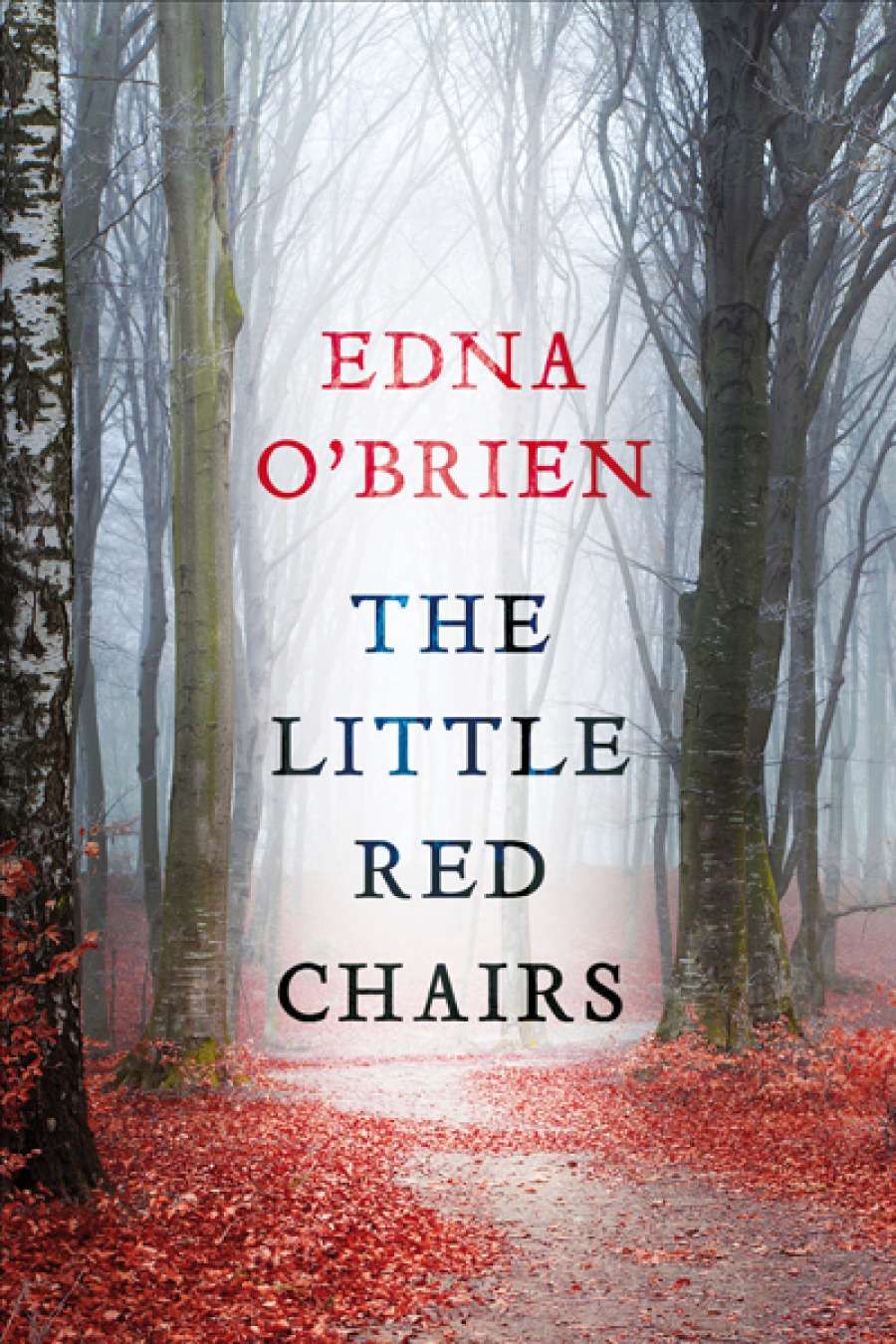
- Free Article: No
- Contents Category: Fiction
- Custom Article Title: Fiona Gruber reviews 'The Little Red Chairs' by Edna O’Brien
- Book 1 Title: The Little Red Chairs
- Book 1 Biblio: Allen & Unwin, $29.99 pb, 320 pp, 9780571316298
She is not the only person won over; Dragan finds commonality with everyone. He spouts heroic poems to his landlady and deflects the interest of the local Garda with banter about football and sudden death. His greatest conquest is the beautiful Fidelma, who once kept a fashionable boutique in town and whose marriage to the much older Jack is stultifying and childless. Dragan's aura of virility and priestly chastity is a heady mix – the kind of religious magnetism often present in O'Brien novels – and in her dreams of bearing his child, Fidelma sows the seeds for a devastating series of events.
Readers au fait with recent history will recognise a number of parallels between Dragan and Radovan Karadžić, known as the Beast of Bosnia. The former Serbian president of Republika Srpska is currently in prison charged with war crimes after spending years on the run and posing as an alternative healer and psychologist.
O'Brien incorporates a war crimes trial at The Hague into the narrative, but this isn't just a study of Karadžić in all his guises – poet, politician, warrior, healer, mystic, mass murderer. As the story progresses the canvas broadens to incorporate the diaspora caused by war and geopolitics.
 Edna O'Brien
Edna O'Brien
Fidelma's journey leads her to London and a place of darkness, literally in the case of the thousands of migrant office cleaners who work like ghosts throughout the night. We hear the stories of those struggling to make new lives without an ounce of security, sometimes within an inch of deportation, even of expiry. It is a world of exploitation and unlikely bedfellows, of charity and charities, of dreary bureaucracy, of drop-in centres, of people too scarred to speak and people who can't stop recounting their hideous misadventures.
The siege of Sarajevo, which began in 1992 and lasted 1,425 days (the longest siege in modern warfare), is recounted from multiple viewpoints. The novel's title refers to a ceremony on the siege's twentieth anniversary, when 11,541 chairs were placed along the city's main thoroughfare, representing all those killed. Among them were 643 small chairs commemorating the children who were targeted from the encircling mountains by Republika Srpska troops.
It is a testament to O'Brien's skill that each of her many characters is deftly and idiosyncratically drawn. Jasmeen, Fidelma's West African landlady, James, a widower who offers Fidelma rural shelter, Mistletoe, a little girl whose paranoid father keeps her locked up in their south London council flat, are fully alive and never feel like plot devices. Similarly, the inhabitants of Cloonoila are both smartphone-using denizens of the European Union and part of an older, quarrelsome, credulous Ireland.
The narrative, with its multiple voices, change of tense, and excursions into dreams and memories, is as fluent as the dark Cloonoila river. It has been ten years since her last novel, but with The Little Red Chairs, her seventeenth, Edna O'Brien, now eighty-five, seems to have reached new heights in her un-flinching treatment of this blood-soaked subject matter.
When O'Brien started her literary career in 1960 with The Country Girls, her racy tales of young women escaping the social and sexual restrictions of Catholic Ireland won her notoriety, especially when the first three were banned in her homeland. Her beauty and immersion in Swinging Sixties London established her glamorous reputation, but despite, or maybe because of, her prodigious output, she has never been regarded in Anglo literary circles as a heavyweight. This novel may change that. Philip Roth has labelled The Little Red Chairs her masterpiece. This may seem hyperbolic, but this is a very fine novel indeed.


Comments powered by CComment